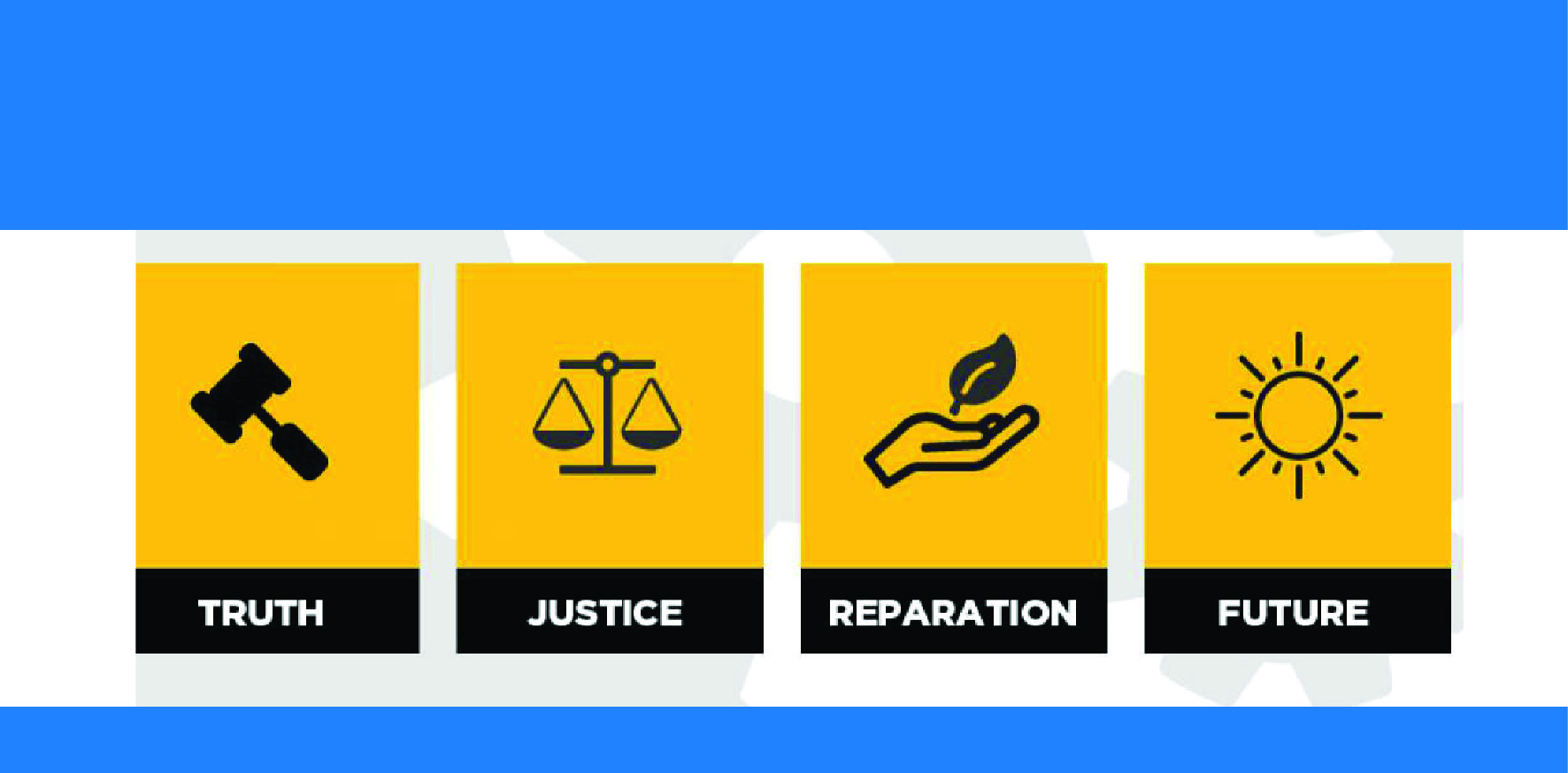A snapshot of coalition politics in Lesotho and probabilities ahead of and beyond 2022 elections
A Kabi-Matekane-Mahao alliance can have the potential to propel Lesotho to a new economic path, with RFP carrying a package of revolution of the country.

Mr Mzimkhulu Sithetho
Managing Director of the Governance Institute for Sustainable Development and Editor-In-Chief of thizkingdom.com
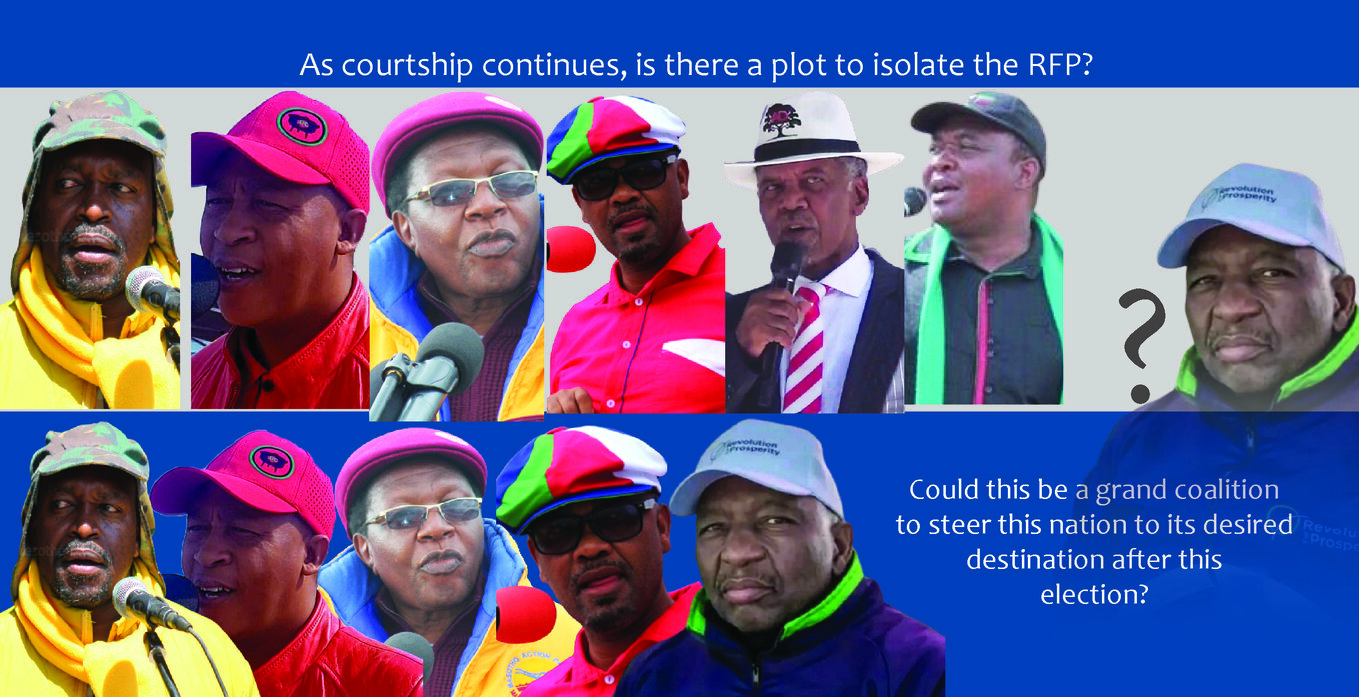
Lesotho’s coalition arrangements and their effect on Lesotho’s politics?
Who will court who in this election?
Who will successfully marry who, with what effect?
How will the coalition arrangements play out and how will the voter benefit?
Introduction
The dawn of coalition arrangements was brought to the country’s nascent politics on the road towards the highly-contested 2007 elections, which were dubbed a snap poll (likhetho-tsome).
There is an unchallenged sentiment that the entry of the All Basotho Convention (ABC) into Lesotho’s political space in 2007 shook up the then politics of the day, which had gone on a lull. This was probably due to the obvious hegemony of the LCD on the politics of the country then.
The ABC transfigured the country’s political landscape, which had been historically seen through spectacles or lenses of either ‘congress’ or ‘nationalist leanings.’
ABC’s long-awaited entry into the politics shifted the political power stronghold of the then ruling Lesotho Congress for Democracy (LCD) and broke the monopoly of the congress politics.
Basotho awoke from their political slumber, though the election registered a low voter turnout of 49%. Though the ABC did not muster enough votes in the 2007 election to lead government, it enormously reduced the LCD’s majority in parliament.
It reduced its self-arrogated political hegemony and arrogance, by intruding the turf of the then strong LCD, which had dominated the political landscape of Lesotho since its formation in June 1996.
ABC-LWP, LCD-NIP coalitions in the run-up to 2007 elections
The hype for and the highly-contested nature of the 2007 election led to formation of informal coalition arrangements, which were cobbled ahead of elections.
Two key participants - the ABC, formed an informal alliance with Lesotho Workers Party (LWP) and the LCD forged its own alliance with the National Independent Party (NIP).
The narrative formed around these coalitions was that they undermined the spirit of the Mixed Member Proportional Representation (MMP) model has not been challenged.
The two coalitions did not submit as one unit to the IEC, but as independent political outfits with the intent to garner as much seats in the National Assembly as possible.
Both LCD and ABC did not submit their PR lists, but on the inverse, each had a lion’s share in the LWP and NIP PR lists.
The only ‘formidable and legitimate coalition’ was that between Lesotho People’s Congress (LPC), Basotho African Congress (BAC) and the Basutoland Congress Party (BCP). It was named the Alliance of Congress Party (ACP).
The Election Update 2007 Lesotho (No:3) of the Electoral Institute for Sustainable Democracy in Africa (EISA) argues that the electoral pacts and alliances cobbled ahead of that year’s elections compromised the credibility of the election result and the election management body’s integrity was largely affected.
The document states: “These developments have had an important bearing on the aftermath of the snap elections of 2007.”
ABC-LCD-BNP coalition in the run-up to 2012 elections
In the 2012 election, ABC, Basotho National Party (BNP) and LCD came together to form a coalition government. However, its lifespan was short-lived as it did not finish its five-year term due to breakdown of relationship between the lead partner in the coalition, ABC and its second-in-command, LCD.
This was largely due to decision-making, which the ABC tended to dominate by not consulting with its coalition partners when it came to appointments to senior government positions. The coalition collapsed in 2014, prompting a snap election in 2015.
2015 elections and the Khokanyana-Phiri coalition government
The aftermath of the 2015 election saw a serious split in the national vote, which gave rise to many parties coming together to form government. Seven parties formed a coalition, which was called the Khokanyana-Phiri.
It too, did not last as it was short-lived by a discord within the DC, which saw the party’s Deputy Leader, Monyane Moleleki break ranks with his leader, Pakalitha Mosisili and jumping ship to form the Alliance of Democrats (AD). This culminated in a successful no-confidence vote against Mosisili, who resorted to calling for a fresh election held in 2017.
The ABC, AD, BNP and Reformed Congress of Lesotho successfully cobbled a four party coalition dubbed the 4x4 government. As it a tradition now, the 4x4 coalition did not see light of day as it ended in 2020 at a time the world was hit by the COVID-19 pandemic.
Two former political arch-rivals, ABC and DC swallowed their pride and came together to form a coalition government. This followed controversy surrounding the then Prime Minister, Thabane who had been fingered in the assassination of his ex-wife.
He announced that he was stepping down and paved the way for the not so politically popular, current Prime Minister, Dr Moketsi Majoro. The ABC-DC coalition has survived rigour in its two-and-half year since 2020. It has been punctuated with
Probabilities for the post-2022 election
ABC-DC Coalition (renewal of vows)
There is high possibility that the current coalition leaders in the outgoing regime (2020-2022) will again revenue their political vows by cobbling a coalition that will lead the next government after the 2022 election. This will be possible if each of parties musters enough votes, though not able to form a government on their own, but to cobble a stable coalition government.
If they together muster enough votes to cross the line (50+1 per cent), they may not need to have smaller parties (the 1 to 9 seats parties) as they will command a simple majority in parliament.
However, a challenge with this arrangement is that they will not rule comfortably as they will need to court others for passage of constitutional amendments or to deal with constitutional issues which need a two-thirds majority. To satisfy the constitutional threshold of 80 seats of the total parliamentary seats, they will then need to drag other smaller parties along.
However, an ABC/DC coalition has proven to be a rocky one following altercation between the then two big parties since the coalition government started in 2020.
The two had come together conveniently in a bid to topple then ABC Leader and Prime Minister, Thomas Thabane, who led the 4x4 coalition government between ABC, Alliance of Democrats, BNP and the Reformed Congress of Lesotho (RCL), which had seized reins of power after the 2017 elections.
The DC has repeatedly charged that its political marriage with the ABC had been made difficult by its partner, boasting it was the one that had sustained the coalition.
ABC had been embroiled in a spat from the time its Deputy Leader, Professor Nqosa Mahao joined its ranks as the second-in-command.
Mahao did not have a comfortable stay in the ABC after he was not accepted by the Leader, Thabane, who charged that the former was a political novice who lacked credentials to lead the ABC. He later jumped ship to form the Basotho Action Party (BAP).
The ABC’s internal wrangling did not stop after Mahao left as it dragged until the then blue-eyed boy of Thabane, Majoro fell from grace and was voted out of the ABC power. He lost to his junior both in the party and government, Nkau Kabi, a deputy secretary-general who was parachuted to lead the party in an election that followed Thabane’s announcement he was stepping down. Nkaku and Majoro did not see eye-to-eye after the latter’s successful run to lead the ABC, of course inheriting the support of the retiring Thabane.
The ABC drama spilled into government and parliament until the Kabi faction made overtures to topple Majoro as Prime Minister.
The move was paved by a foiled no-confidence motion in parliament. Again, the ABC and DC logged horns in parliament following the newly-elected Kabi’s announcement in parliament that the ABC had pulled out of the coalition government with the DC.
This happened as Thabo Sophonea, Finance Minister tried to deliver a budget speech in parliament for the 2021-2022 financial year in March 2021. Speaker of National Assembly, Sephiri Motanyane read a letter, which stated: “In its seating of 2 March 2022, the ABC caucus has resolved to withdraw the party from government and the coalition agreement with the Democratic Congress”. The letter was signed by the ABC’s Mohlajoa in his capacity as the caucus secretary.
Mr Kabi’s quest to occupy state house after his election to lead the ABC made him orchestrate the ouster of Prime Minister, Dr Moeketsi Majoro, internally through negotiations and through a no-confidence motion sponsored by Mapesela.
All these attempts failed and he was left with an egg in his face. However, the DC had laughed off the move by the ABC to topple a government. Its spokesperson, Serialonig Qoo had charged: “As far as the DC is concerned the coalition government still exists. Toppling a government is a game of numbers, and the ABC does not have enough numbers to do so,” Mr Qoo said.
The last straw on the coalition between the DC and ABC had been preceded by differences between the two coalition leaders.
In December 2021, ABC and DC had met to bury the hatchet to ensure that the alliance lasted the distance until elections were held. The DC had blamed the ABC for conducting government business without involving it.
Another bone of contention between the two parties was the delimitation of constituency boundaries, which the DC had complained that the ABC did it to its advantage.
The issue spilled to the courts of law and the DC alongside the Movement for Economic Change (MEC) clinched victory in their challenge of the suspected ‘gerrymandering-styled’ constituency delimitation.
Nonetheless, the two parties, seemingly dominating the politics of the country have decided to bury the hatchet and are now courting to form a coalition after the 2022 election.
The only common denominator between the two is that they want to thwart the new kid in the bloc, the Revolution for Prosperity (RFP).
RFP came unexpectedly when the ABC and DC had individually misread the political trends, each thinking that it had it all to amass power in the forthcoming election.
RFP came to destroy that power dynamic, throwing the two’s h0pes of straightforwardly winning the election and occupying state house without coalition partners.
With these hopes shattered for both ABC and DC, they find no other alternative, except to come together again and forge a coalition.
But if that succeeds, it cannot last the distance as it it will formed out of an ill motive of blocking the RFP.
ABC-RFP or DC-RFP, but the two are
The relationship between the ABC and DC has been a rocky one as mentioned. If they decide to separate for good and not willing to get into a coalition again, that will create a grand opportunity for the RFP to go into bed with either ABC or DC.
This is only a balance of probabilities under normal circumstances if all other factors are held constant.
However, it looks the two, ABC and DC are hatching an ill-fated plot to side-line the RFP for bitterness that it spoilt the broth. But they say, there is neither permanent friend nor enemy in politics nor is there a vacuum.
If matters go to the extreme and the RFP decides to go with the yellow party, chances are that the ABC will bank on its historical numbers in parliament and only want a party that will help it cross the line of 50+1 per cent.
The two parties share two things in common - they both brought an earthquake in the political landscape of Lesotho upon their formation.
They were formed at a time when the disgruntlement had heightened among the electorate, conveniently drawing the attention of voters into their fold.
Two, the two parties broke out of the traditional congress and nationalist formations, bringing a nuance to Lesoth0’s politics.
Conversely, the ABC’s formation was led by a seasoned politician, Thabane, while the RFP’s formation has been led by a business mogul, Sam Matekane, who many charge that he may be a political novice.
With Kabi now at the helm of the ABC, he might be equal to the task to lead a coalition government with Matekane, given that all other factors are constant.
Proponents of a change of guard in the leadership of the ABC, which is led by Kabi opine that he is a firebrand who will strategically lead the ABC towards bringing about the much-avowed economic development of the country.
However, what is still troubling in the ABC’s leadership under Kabi is his association with the erstwhile leader, Thabane, who is infamous for remote-controlling the party to serve his political interests even as he has declared his retirement.
His political manipulation, dubbed ‘the Makhoakhoeng powerbase’ might not go down well with Matekane, whose vision is to revolutionise the governance architecture and the economy of the country.
Being a new kid on the bloc, untainted by the political theatrics and shenanigans of Lesotho, he might not stomach or withstand the Makhoakhoeng political interjections in the ABC, which may spill into government.
ABC-DC-RFP
Depending on the voting patterns which will surface after elections when election results have been announced, there can be an alliance between ABC, DC and the new kid on the political bloc, RFP.
If a vote will be split in this election to the extent that contesting parties get a pittance of the total vote, the main contenders ABC and DC may not be able to muster enough votes to form coalition government. They will resort to rope in a third partner, this may be the newly-formed RFP.
Though the RFP’s manuscript for elections hinges on transformation of the country’s governance architecture, numbers are key in the formation of coalition arrangements, more than consideration for content of manifestoes.
In the RFP’s quest for being part of the ruling coalition, the party can opt to join willing tickets of ABC and the DC.
It is not possible that the RFP can rule out a coalition arrangement with either ABC or DC or a combination of the two.
But as it stands now, the RFP seems to be still beholden to the false notion that it wants to rule alone. It has to reawaken early, lest it makes hurried and late decisions after elections when results are not in its favour.
ABC-RFP-BAP
A coalition that can be possible is that between the ABC, RFP and the Basotho Action Party (BAP). Also, another new kid on the bloc, BAP steered Basotho into political action after its formation, which came at the height of tensions and rancour within the ABC.
BAP leader, Professor Mahao had engaged in a protracted and bitter spat with his leader, Thabane since his election to deputise him in February 2019.
Since then, Mahao never settled as the second-in-command after being elected in a hotly contested conference. Mahao threw in the towel and left the ABC in April 2021 to form BAP.
He pulled masses to his fold at the beginning of the BAP, this threatening the fortress of the ABC.
However, his perceived vibrancy in the politics of Lesotho was short-lived soon the RFP entered the stage. All eyes were on the RFP.
A coalition of the ABC-RFP-BAP, if the former fails to convince the DC, will not be embroiled in internal spats that threaten the coalition.
A Kabi-Matekane-Mahao alliance can have the potential to propel Lesotho to a new economic path, with RFP carrying a package of revolution of the country.
The three are relatively new in the political minefield of Lesotho and they are not tainted by the political shenanigans and theatrics that have bedevilled the country’s politicians.
AD-MEC-LCD-SR
The quartet of AD, Movement for Economic Change (MEC), Lesotho Congress for Democracy (LCD) could make a formidable coalition only if they join any of the four giant parties - ABC, DC, RFP and BAP. On their own, the four can hardly bring enough numbers that can lead to formation of a government.
The AD is a political outfit led by one of Lesotho’s political moguls, Monyane Molelei after breaking ranks with his long-term political friend, Pakalitha Mosisili in the DC.
Their difference came to a height until Molekeki was forced to jump ship and form the AD. Upon its formation, the AD defined the odds and approached the ABC leader Thabane to form an alliance, which would later form part of the 4x4.
Moleleki broke ranks with Mosisili during the seven-party coalition dubbed Khokanyana-Phiri, at a critical time when Thabane had skipped the borders to seek refuge in South Africa after the 2015 elections.
Moleleki’s shunning of the DC rocked the boat in the Khokanyana-Phiri government, which was later brought to its knees, following a successful no-confidence vote against Mosisili.
The MEC is also relatively new in the politics of Lesotho, with its leader, Selibe Mochoboroane having quickly and smartly carving his political path in Lesotho’s political minefield, which is a turf for old politicians.
In spite of the high treason case hovering over his head, Mochoboroane still remains one of the young attractive leaders, who promises good fortunes for the country.
The LCD has, on the other hand, gradually waned until it became a political minor in the 2017 elections when it won one constituency seat in Mahobong, the stronghold of its leader, Mothetjoa Metsing and a handful of PR seats.
Since then, the LCD has not made formidable inroads into the politics of Lesotho, or rather, reignite its former political fortunes and former ruling party.
It has failed to revitalise, rejuvenate and become attractive to regain and reclaim its former fortress, which it lost during the last straw of a major split that saw the formation of the DC in 2012.
A decade later, the LCD is fraying at the seams, with its leader floundering between Lesotho and South Africa as a judicial runaway.
As he leads the LCD to national elections, Metsing has a dark cloud hanging over his head, of a high treason case.
ABC-DC-RFP-BAP - A grand coalition?
When all is done and dusted, there remains one critical question - what is a grand coalition going to be like? The ABC, which is led by a Young Turk, Kabi, can be amenable to all coalition agreements, as long as the parties bring numbers that can help it occupy state h0use, as a leader of that coalition though.
The DC as well, led by another young Turk, can be amenable to a coalition that can see its leader occupy either the top seat of Prime Minister or reverting to its current seat of deputy in government.
It is understood that Mokhothu craves for the premiership more than any other leader. His campaign trail has been one of an eager leader who is keen to lead the country.
The RFP brought a nuance to Lesotho’s politics and promises a renewal and transformation of Lesotho’s nascent economic and political development.
That revolutionary spirit can energise the now experienced ABC and the DC to propel Lesotho to new economic and good governance heights.
The BAP is led by an academician, who brings political change from an informed and knowledgeable standpoint.
Mahao has finally, though with a pint of salt and a lot of political tribulation come out of his cocoon and demonstrate his political prowess.
If he can turn political and development theory into practice, his BAP can contribute to a formidable four-party coalition.
Most Read
Reforms, Elections and Democratic Stability in Lesotho
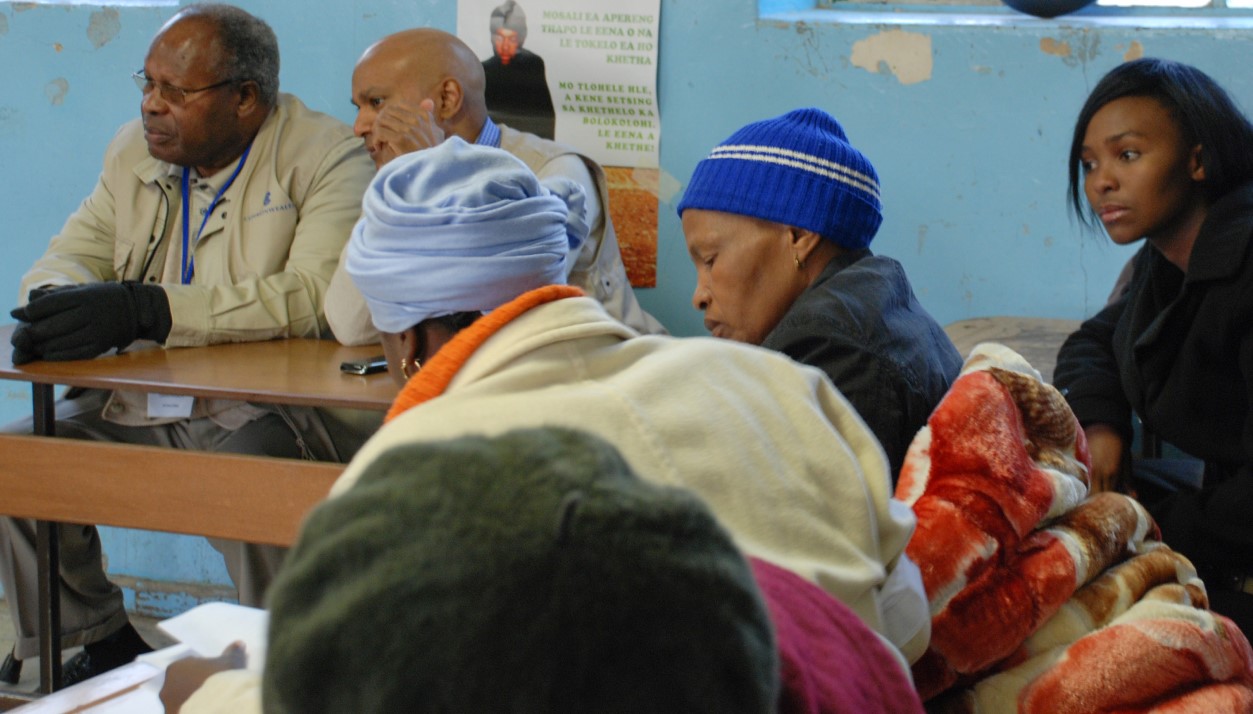
Organizations and companies go through a rough patch
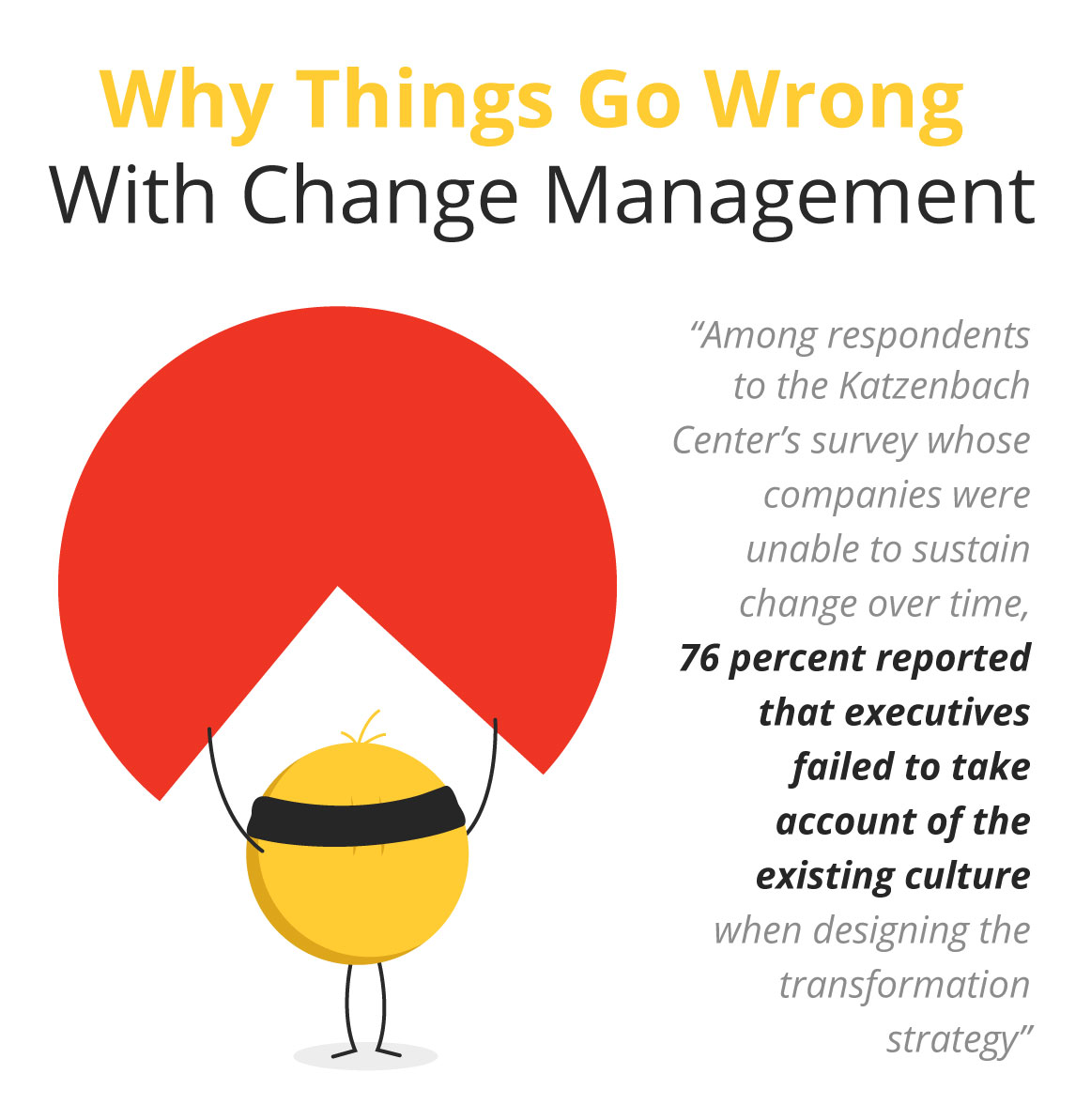
The cooling of the political temperatures came with the BAP joining the bandwagon after a season of political agitation and chess games, reflecting political anomalies in the system of political governance of Lesotho:

Related Stories
The reforms: reality or fairytale?
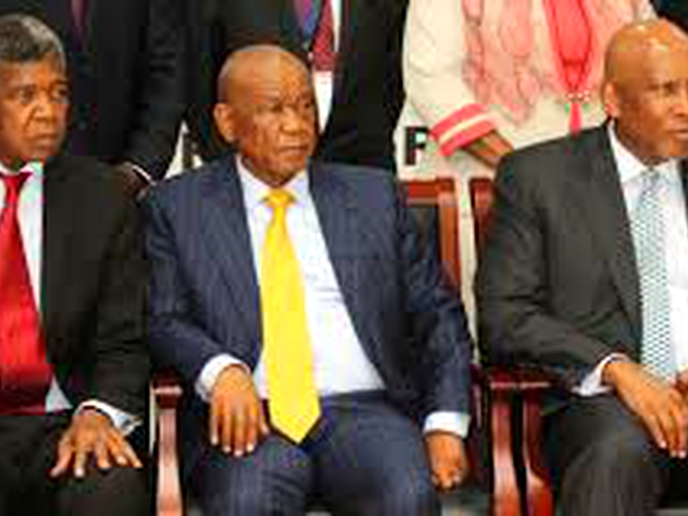
What is the meaning of democracy within Lesotho's political parties?
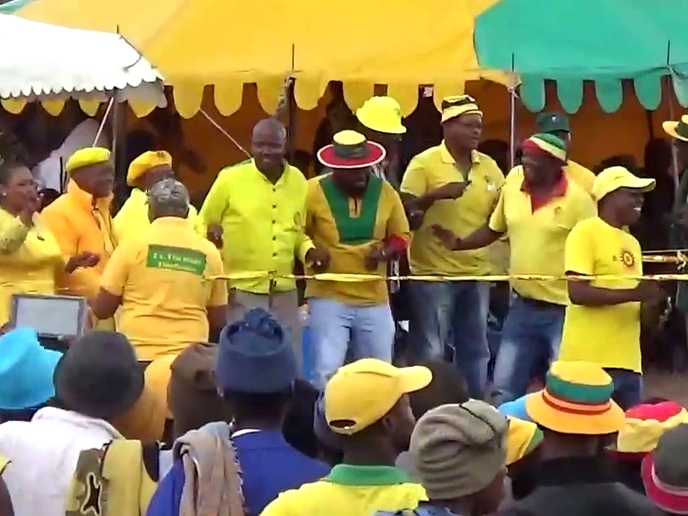
The cooling of the political temperatures came with the BAP joining the bandwagon after a season of political agitation and chess games, reflecting political anomalies in the system of political governance of Lesotho:
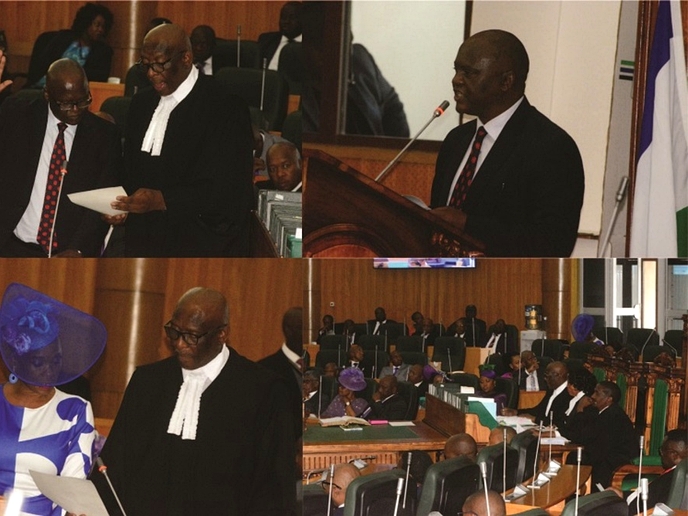
Opinion Vote Polls
Do you think the existing government is going in the right direction to benefit the people of the country?
Subscribe for your daily newsletters
Enter your email to subscribe to our newsletter.

